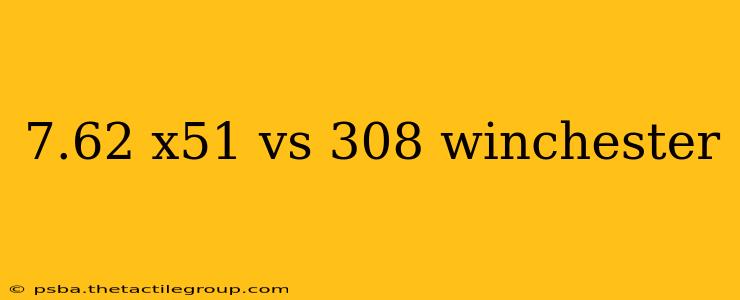The 7.62x51mm NATO and the .308 Winchester are often discussed in the same breath, and for good reason: they're nearly identical in physical dimensions. However, subtle yet significant differences exist that impact their performance, applications, and suitability for various purposes. This in-depth comparison will delve into these key distinctions, helping you understand which cartridge might be the better choice for your needs.
Understanding the Near-Identical Twins: Physical Dimensions and Ballistics
At first glance, the 7.62x51mm and .308 Winchester appear interchangeable. Both boast a nominal bullet diameter of .308 inches (7.82mm) and a case length of approximately 2.01 inches (51mm). However, the subtle differences lie in the chamber specifications and tolerances.
-
Chamber Dimensions: The 7.62x51mm NATO cartridge is designed to stricter military specifications, allowing for slightly larger chamber dimensions. This ensures reliable functioning even with high-pressure loads and potentially less-than-perfect ammunition. The .308 Winchester chamber is tighter, leading to greater accuracy with high-quality ammunition but potentially increased sensitivity to variations in ammunition manufacturing.
-
Pressure Levels: The 7.62x51mm NATO operates under higher maximum average pressure, meaning that the cases and chambers are designed to withstand greater stress. This design is largely due to military considerations, ensuring reliability under a wider range of conditions. Conversely, .308 Winchester ammunition is typically loaded to slightly lower pressures, leading to potentially less recoil in some instances. However, there's significant overlap between the pressure ranges of high-quality commercial .308 and military 7.62x51mm.
-
Ballistics Performance: While ballistics are similar in practice, slight variations can occur due to the differences in pressure and ammunition manufacturing tolerances. High-quality .308 ammunition generally offers impressive accuracy, and the lower pressure can lead to slightly less wear and tear on weapons systems.
Applications: Military vs. Civilian
The intended applications of each cartridge significantly differentiate their usage.
-
7.62x51mm NATO: This cartridge is a cornerstone of military small arms worldwide. Its robust design ensures reliable functioning even in harsh conditions and with varying ammunition quality. It's favored for its stopping power at longer ranges, making it effective in military applications where precise long-range accuracy isn't always paramount.
-
.308 Winchester: This cartridge is a popular choice among civilian hunters and sport shooters. Its accuracy and versatility make it ideal for various hunting applications, while its relative affordability and widespread availability contribute to its popularity in target shooting and long-range competitions.
Interchangeability: A Cautionary Tale
While the physical dimensions are remarkably similar, firing .308 Winchester ammunition in a 7.62x51mm chamber is generally considered safe, although the tighter chamber of the .308 could lead to higher pressure. However, firing 7.62x51mm ammunition in a .308 Winchester chamber is dangerous and could result in catastrophic failure, due to the higher pressure potentially exceeding the chamber's design limits.
Conclusion: Choosing the Right Cartridge
The choice between 7.62x51mm and .308 Winchester ultimately depends on the intended use. The 7.62x51mm NATO prioritizes reliability and robustness, making it perfect for military and high-stress situations. The .308 Winchester prioritizes accuracy and performance in sporting and hunting contexts with high-quality ammunition. Remember, safety should always be the paramount consideration, and never attempt to mix and match ammunition based solely on similar physical dimensions.

